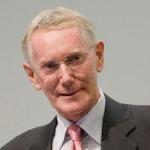The obvious question, and the topic of this session, is how we got into this mess. Answering this question is crucial if we are to move on to the next set of questions. What policies would help us get out of this mess, and would help us avoid similar problems in the future?
Reference is made in the title of this session to “Economic Theory, Politics and Policy”. My own belief is that serious mistakes have been made with respect to all three, leading in the end to harmful policies. However, over the last thirty years, all three have been linked in a fundamental way; the primary focus of each has been on economic outcomes over a relatively short time horizon. Even inflation targeting, which is certainly a better policy framework than the employment maximizing approach that preceded it, generally focuses on outcomes over the next two years. While we expect politicians to have short term horizons, it is worth noting that most conventional models of the economy are also inherently short term in that they focus on the “flow” of incomes and expenditures. If stocks and “imbalances” that can build up over longer time periods play no role in theory, it is not surprising that they have had such little influence over policies.


